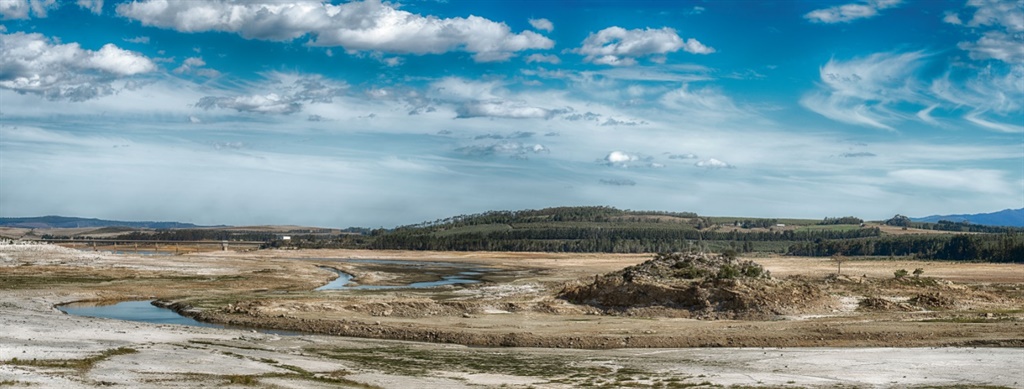
During a decade of climate talks, we’ve warmed the Earth by a degree already. Gayle Edmunds looks at the progress of activists against the backdrop of political inaction
In the run-up to the UN climate talks, COP15 in Copenhagen in December 2009, 350.org organised the International Day of Climate Action.
The purpose was to show those in charge that there is a global movement that will fight for real change on climate – now that movement has grown apace.
During this decade a new generation of activists joined the fight for life – leaving the politicians behind.
The question is – is it too little too late?
And have the efforts of companies such as ExxonMobil to discredit the science and the short-term thinking of politicians lost us too much valuable time to save ourselves from extinction?
We hope not. We need to take personal action to force change – including becoming the leaders we would like to vote for.
COP15’s main purpose was to thrash out a new agreement to replace the Kyoto Protocol agreed to at COP1 in 1995 and signed at COP3, the first phase which expired in 2012.
It wasn’t very successful and we all entered the decade with only this description of the talks from The Guardian.
“There are also concerns about whether any action we take now to prevent climate change may be too little too late. A Guardian poll revealed almost nine out of 10 climate scientists do not believe political efforts to restrict global warming to an additional 2°C — the level the EU defines as ‘dangerous’ — will succeed.”
A decade on, the Earth has already warmed by a degree.
Limiting it to 2°C or less is an impossibility as those in charge continue to argue about carbon offsets and talk about fantastical economic growth.
The Paris Agreement, signed in 2016, according to the UN Climate Change, would “for the first time bring all nations into a common cause to undertake ambitious efforts to combat climate change and adapt to its effects, with enhanced support to assist developing countries to do so. As such, it charts a new course in the global climate effort.”
The US, historically and now one of the world’s most prolific greenhouse gas emitters, announced its intention to pull out of the Paris Agreement in November next year, the soonest it can.
A number of President Donald Trump’s policies have actively dialled back any gains made, making the country even more of a pariah state.
Our own country still uses coal to fire up more than 70% of our power (when we have it), despite our abundance of sun and wind.
What is in even shorter supply than Eskom’s ability to supply dirty power is ethical and long-term political will to accelerate renewables.
The climate talks are all underpinned by the Intergovernmental Panel on Climate Change (IPCC) which was established in 1988 by the World Meteorological Organisation and the UN Environment Programme to assess climate change based on the latest, peer-reviewed science.
In the past decade, the IPCC released its fifth assessment in 2014.
Among the many scary bits is that there is a 95% to 100% probability that human influence has been the dominant cause of observed warming since 1950 and that the past 30 years (1983 to 2013) have been the warmest 30-year period for 1 400 years.
Since that report we’ve had heat waves that have consecutively broken records.
In the run-up to the next assessment cycle in 2022, the IPCC released a trio of damning reports – Global Warming of 1.5°C last year, Climate Change and Land and Ocean and Cryosphere both this year.
Significantly, the language has changed in the latter part of this decade.
Informed people no longer quibble about global warming and climate change, two terms that expand on elements of the same phenomenon. Instead we agree it is a climate crisis.
Even without the reports, we all know that much more must be done – much more quickly by all of us.
It is in the air we breathe – Joburg’s air quality is half way to being as filthy as New Delhi’s – the unrelenting heat waves, the droughts, the floods and the tornados.
And that’s just in South Africa.
Globally in the past 10 years we’ve recorded a number of catastrophic natural disasters book-ended by 2010’s Haiti earthquake, which killed 230 000 people, and by the Australian wildfires that are raging on, which Stuart Blanch from WWF Australia said had burnt down 300 million trees.
If anything, this decade swept away any further attempts at discrediting the science and provided more lived experiences than anyone needed for why we need to ensure the roaring 2020s are about taking collective action to save our home.
Sadly, the need for critical action was again not reflected in the political foot-dragging at COP25, which ended on Sunday in Madrid.
“Never have I seen such a disconnect between what the science requires and what the climate negotiations are delivering in terms of meaningful action. Most of the world’s biggest emitting countries are missing in action and resisting calls to raise their ambition,” said Alden Meyer, strategy chief at the Union of Concerned Scientists.
Extinction Rebellion SA said: “The UN Environment Programme has advised us that we need to reduce emissions by 7.6% a year from 2020 to 2030 to have a hope of capping increases to 1.5°C.
“South Africa’s Nationally Determined Contributions is commensurate with a 3°C increase. The state has committed to increasing emissions for another five years and reducing them only in 15 years’ time. This is dangerous and highly likely to harm millions. South and southern Africa are forecast to warm at 1.5 to 2 times the global average.”
It seems – against the advice of global scientists and the next generation’s calls to act – our collective political leadership has ended the decade with yet another failure.
Not beyond hope - Young leaders will fill vacuum
“It is the people who must save the environment. It is the people who must make their leaders change. And we cannot be intimidated. So we must stand up for what we believe in.” – Wangari Maathai
Continuing the legacy of game changers, such as Kenya’s Maathai, who died in 2011, there is a global army of young activists who have taken up her challenge this decade.
Greta Thunberg (16), the Swedish founder of #FridaysForFuture, is the most recognisable.
She was named Time’s Person of the Year last week, but she is not the first, nor will she be the last to take the fight to those holding power.
- Standing Rock Sioux Tribe – US – What began in April 2016 as a protest against the building of an oil pipeline through their land became a symbol of the growing global call for climate justice and indigenous rights.
- Xolobeni Community – South Africa – This community fought against the government’s attempts to mine their land without their permission and won. International law recognises that indigenous peoples have “the right to free, prior and informed consent over their land”.
- Kaluki Paul Mutuku – Kenya – has a BSc degree in environmental conservation and natural resources management from the University of Nairobi and has been a member of the African Youth Initiative on Climate Change since 2015. He is the founder of Green Treasures Farms, which teaches communities about sustainable practices.
- Leah Namugerwa – Uganda – was inspired by climate change activist Greta Thunberg to fight for change in her own country after watching scenes of landslides in Uganda on TV a few years ago.
- Ridhima Pandey – India – was nine years old in 2017 when she filed a lawsuit against the Indian government for failing to take action against the climate crisis.
- Aditya Mukarji – India – began the war against plastic straws in March last year and he replaced 500 000 plastic straws at restaurants and hotels in New Delhi in just five months. His revolution swept the world. Informed children everywhere refuse to use plastic straws.
- Nina Gualinga – Ecuadorian Amazon – At 18 she represented indigenous youth before the Inter-American Court of Human Rights, helping to win a landmark case against the Ecuadorian government for allowing oil drilling on indigenous lands. Now 25, she advocates on the international stage for indigenous rights and a fossil fuel-free economy.
- Autumn Peltier – Canada – Last year, at the age of 13, this “water warrior” addressed the UN about the need to conserve and protect our water. “One day I will be an ancestor and I want my great-grandchildren to know I tried hard to fight so they can have clean drinking water.”
- Extinction Rebellion – global – It began with a protest in London last year and while it was founded by a small group of people it prides itself on being a grassroots, non-hierarchical structure. The premise is that if our governments are not going to stop our extinction, we have to take action to stop it ourselves.
- Jamie Margolin – US – founder of Zero Hour, an organisation that protests against the inaction of governments in the fight to mitigate the climate crisis.




 Publications
Publications
 Partners
Partners








